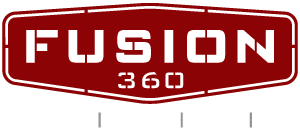When it comes to the world of digital marketing, there are a wide variety of methods that advertisers use in an attempt to reach potential consumers. And for Internet marketing, there are perhaps few methods that have become more engrained than using content marketing and targeted ads. And while each method offers advantages that companies should be aware of, a more thorough investigation makes it quite clear that content marketing is the better choice for those looking to generate a top-notch return on investment.
Content Marketing
Content marketing is unique from other forms of advertising because it doesn’t necessarily go for the direct sale. Rather than interrupting a Web user’s experience (think of those oh-so-hated pop-up ads), content marketing seeks to add to the Web experience by providing useful information or decent entertainment related to a company’s product or industry.
So how does content marketing really make a difference? First and foremost, quality content marketing efforts that also utilize best SEO practices can help provide a serious boost to a company’s rankings in Google search results. For example, if your company’s blog consistently provides quality, informative articles, search engines pick up that information and use it as an indicator that your company is an authoritative source of industry information. And that in turn will help a website move up in the search rankings.
Content Marketing Institute also notes that customers are much more trusting of content marketing materials than traditional advertising, citing reports from Nielsen and TMG Custom Media that indicate the majority of potential customers are more likely to buy a new product from a company that provides customized articles and other forms of content (especially those not-always-easy-to-reach Millennials). After all, which seems more reliable—a banner ad telling you to “buy now” or an article that offers an in-depth explanation as to why a particular product or service is a worthwhile investment?
This can also pay off when it comes to social media efforts. In today’s digital landscape, social media should be part of each company’s content marketing strategy—and rather than simply pushing the latest sale or product through a company’s Facebook page, companies (and their content) are more likely to get quality engagement by promoting blogs, articles and other pieces of useful information through social media channels.
Targeted Advertising
While there is certainly some value to be gained from targeted ads, studies indicate that this digital marketing method is not as effective as content marketing for providing an SEO boost, gaining trust of customers, or even in generating sales leads.
Targeted advertising takes advantage of Web data to deliver advertisements to the consumers most likely to be interested in a particular product or service. This is typically determined based on past Web browsing history and other online activities. While this may narrow the number of Web users who see a particular advertisement, these ads are much more likely to be reaching the consumers that are interested in the associated product or service, making them more effective than non-targeted ad placements.
However, this process is far from perfect. As Forbes notes, 54 percent of American companies still claim that identifying the right groups to target remains a major challenge. While a company may know who its desired target audience is, correctly identifying these individuals online—even with the help of algorithms and big data—is far from an exact science.
These targeting methods also cannot change the fact that targeted banner ads and videos—while still able to reach a more relevant audience—are still advertisements that interrupt a user experience, rather than contribute to it, as content marketing does. As a result, many online users are distrustful of targeted ads in general, and these methods are not always effective, even when reaching the target audience—in fact, some studies have reported display advertising click-through rates to be as low as 0.1 percent.
The Comparison
While both content marketing and targeted digital ads can play a role in boosting online leads and sales, studies comparing the effectiveness of the two practices have made it clear that content marketing has a distinct advantage. A study published on Moz reports that “the companies with the highest [digital advertising] ROI focus on blogging, organic search, and content amplification.”
Blogs, organic search, content amplification—these are all terms that are extremely relevant to content marketing. Be it through creating a quality blog, publishing in-depth articles on third-party sites or further promoting such efforts through social media, these content marketing tactics not only increase consumer trust, but also provide a needed boost for SEO—results that generate sales and leads in a way that more traditional methods of advertising—targeted or not—simply cannot achieve.
So when it comes time to decide how your company’s advertising budget will be spent, choose wisely. Targeted ads may seem like the easier option, but an investment in content marketing will typically yield better results, making it well worth the investment.


